Lockdown city: no freedom as business told to wait
Business groups, health experts and politicians have criticised the Victorian government’s delayed roadmap for winding back restrictions.
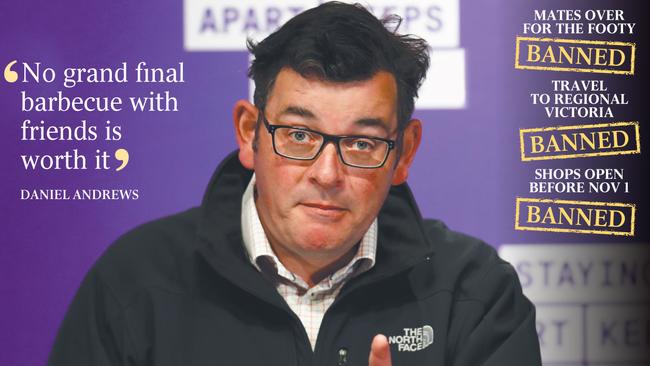
Five million Melburnians will continue to have their movements policed indefinitely and retail and hospitality businesses will have to wait until November to reopen, under Daniel Andrews’ revised plan for winding back coronavirus restrictions that have also quashed hopes of AFL grand final celebrations.
After more than 100 days of lockdown that has resulted in daily infections in their hundreds falling to single digits, the Victorian Premier claimed it was still too early to dramatically wind back restrictions that limit the ability of many hospitality and retail employees to work.
Business groups, health experts and politicians have criticised the Victorian government’s latest revised roadmap for winding back restrictions, warning that delays to reopening business, many which have been shut since July, were unnecessary, given the state’s current COVID-19 case numbers.
Victoria recorded just two new infection cases and no deaths on Sunday and there have been just five new cases over the past three days, taking the 14-day rolling average to 7.5.
Yet business has been largely excluded from changes that kicked in at 11.59 last night.
In a complicated and at times contradictory roadmap, hairdressers, outdoor car washes and mobile pet groomers can now open and residential property auctions can resume with limited numbers. But retail and hospitality will have to wait until the third step, scheduled for 11.59pm on November 1, to reopen.
With the AFL grand final scheduled for Saturday, and reigning premier Richmond to play Geelong at Brisbane’s Gabba — the first time the final game hasn’t been held in Melbourne — Mr Andrews issued a pointed warning to football fans.
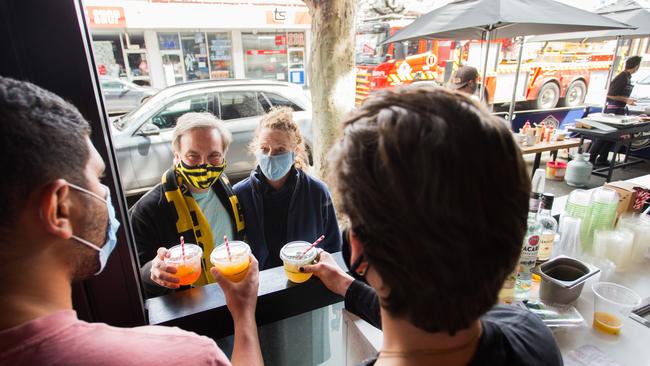
He said no one should be considering breaching public health rules by having visitors to their homes to celebrate and warned that police would be on the lookout for rule-breakers.
“I‘m appealing to people, as significant as the day is, it’s got to be different,” he said. “The teams that are in that grand final have had arguably the most difficult season ever. They followed the rules. They’ve been in quarantine. They’ve had all sorts of restrictions placed on them.
“We need to do the same. It’s not an ordinary grand final in every sense.”
Australian Hotels Association Victoria president David Canny, who had been urging the industry to reopen in a COVIDSafe way, said members were “bitterly disappointed” by the timeline.
He said it would make more sense to allow football fans to gather in hotels, where interactions could be regulated, and the decision to keep venues closed could backfire.
“As if people aren’t going to get together to watch the grand final,” Mr Canny said.
“With pubs closed people are going to go to other people’s houses. And remember that’s what sparked the second wave — not pubs and restaurants — it was people gathering in private homes.”
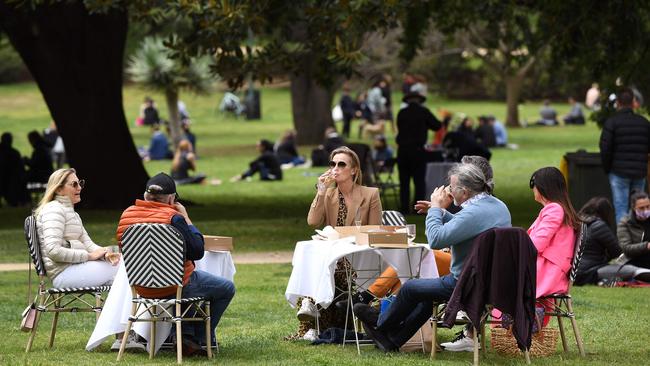
Scott Morrison welcomed the Victorian government’s decision to enable some businesses to return to limited operations but urged it to consider expediting the next steps.
“We understand and sympathise with the frustration and concern expressed by businesses about the ongoing cost and impact on their jobs and livelihoods of this second wave,” the Prime Minister said in a joint statement with federal Health Minister Greg Hunt.
“Victoria’s three-day rolling average is now below two cases per day. Maintaining this result will make a strong case for the retail and hospitality sectors to reopen before the next review date in November.”
Mr Morrison said every day that Victoria remained under restrictions came at a “heavy cost”.
“More than 1000 jobs have been lost, on average, every day,” he said. “The continued health, mental health and financial impacts of these restrictions will be profound on many Victorians.”
A new six-page guide for easing restrictions released on Sunday detailed a complicated list of changes to limits on people’s freedom of movement, public gatherings, sport and recreation pursuits, cultural institutions and industries and workplaces. Most Victorians will be required to continue working from home beyond the November easing.
Regional Victoria, which has a 14-day rolling average of less than one case, will be governed by different rules. It too will have restrictions eased from Monday enabling hospitality venues to cater to more patrons, libraries and swimming pools to open and people to welcome more visitors into their homes.
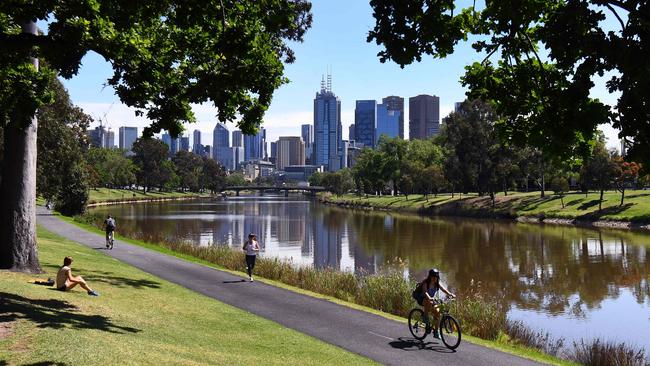
Changes affecting Melbourne from Monday will largely govern social interaction and include an increase in the number of people who can gather outdoors to 10 from a maximum of two households and the scrapping of the previous two-hour time limit on leaving home.
However, the four permitted reasons for leaving home — shopping, medical visits, caregiving and exercise or social interaction — will remain, as will a limit on how far a person can travel from their home, which will increase from 5km to 25km.
The so-called “ring of steel” around metropolitan Melbourne, preventing residents from leaving the city without a valid reason, will remain indefinitely, with Mr Andrews claiming it would be “strengthened” with more police checks carried out to protect regional Victoria from the virus.
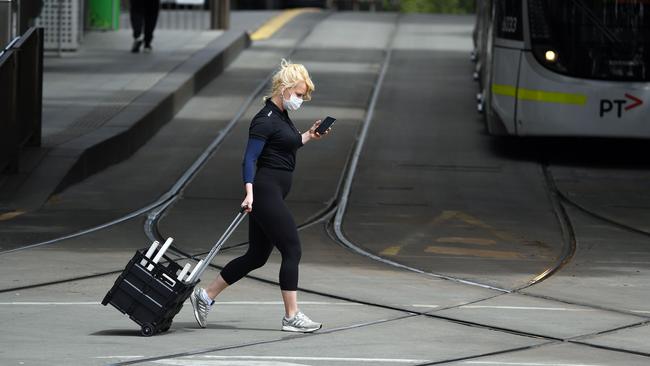
He said he “hoped” it could be scrapped by Christmas but could give no guarantee.
Mr Andrews also conceded that it was difficult to quantify a precise public health benefit of the new 25km boundary, which has been labelled as unnecessary by some health experts.
Deakin University epidemiologist Catherine Bennett questioned the need for the limit, especially given the state appeared ready to move to a third stage of easing restrictions under which movement limits were not a part of the original roadmap.
Infectious diseases physician Peter Collignon agreed: “Fundamentally, it doesn’t do much”.
“Provided people are keeping to the rules when they go out, it doesn’t matter if they travel 25km or 50km or 100km,” Professor Collignon said.
The Premier conceded that he was unable to commit to a date when leaving-home restrictions would be dropped altogether, and said the 25km limit could remain in place for some weeks after moving to the next stage of easing from November 1.
“These changes can’t be absolutely everything everyone wants,” he said. “But they are the steps we can safely take that will make life a little bit easier.”
Mr Andrews said that cases and accompanying data would be reviewed every day during the week “and when we get to next weekend, if we can move any earlier and do it safely, we will”.
Former Victorian Liberal premier and Hawthorn Football Club president Jeff Kennett also weighed in, accusing the Premier to “talking down” to Victorians.
“We lost the football season and the grand final because he failed,” Mr Kennett said. “Now he will not allow any celebrations. What a sadness for those who have a team in the (final).”

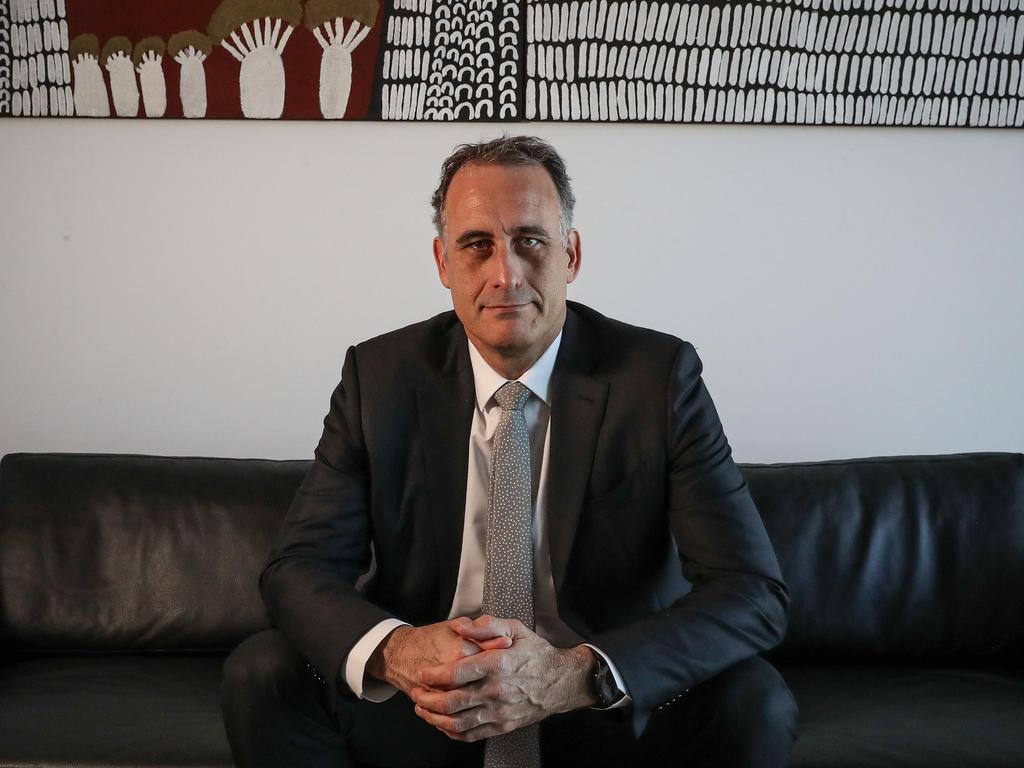

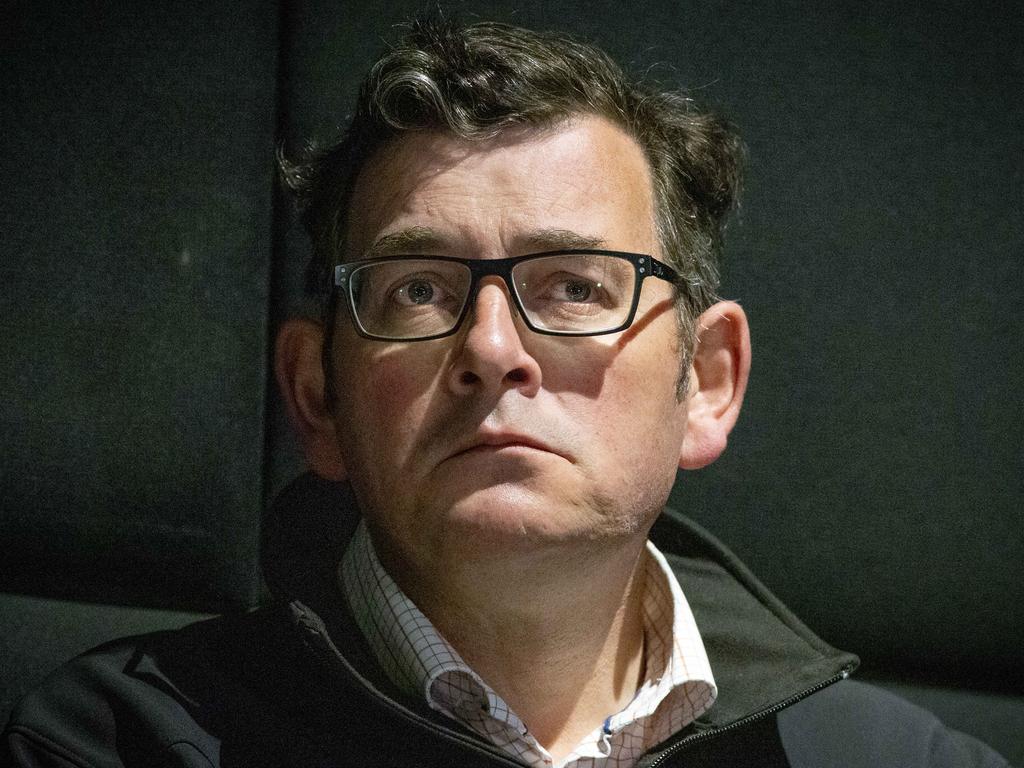
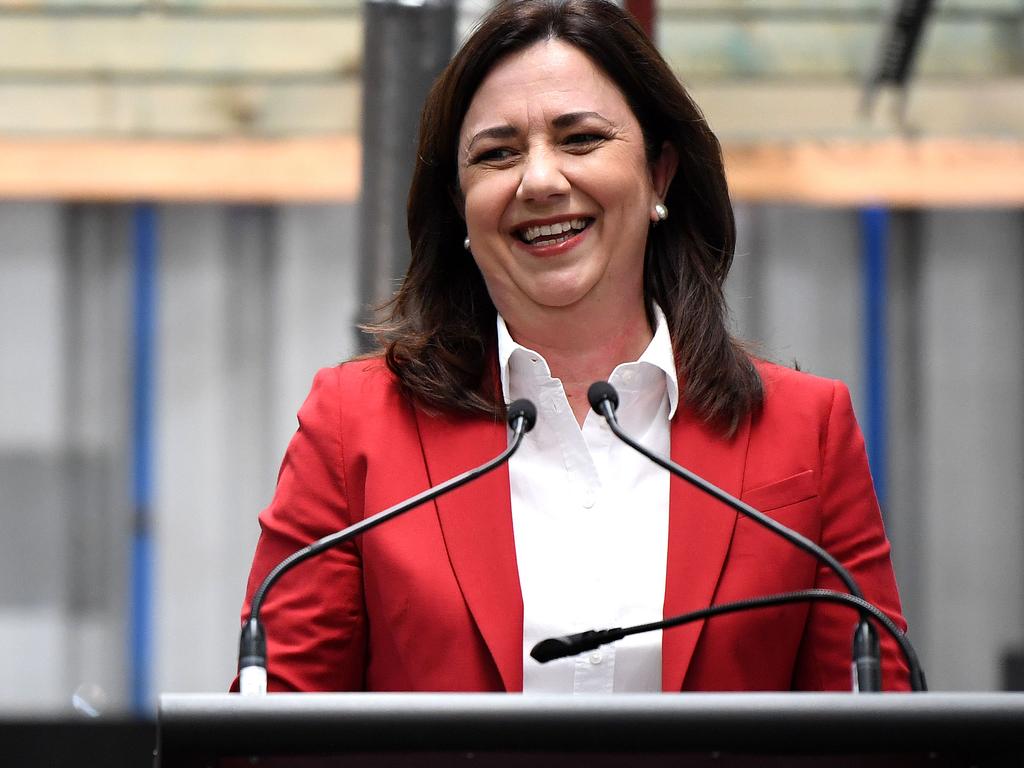


To join the conversation, please log in. Don't have an account? Register
Join the conversation, you are commenting as Logout